-
- Posted on
26th Jan
- Category:
news

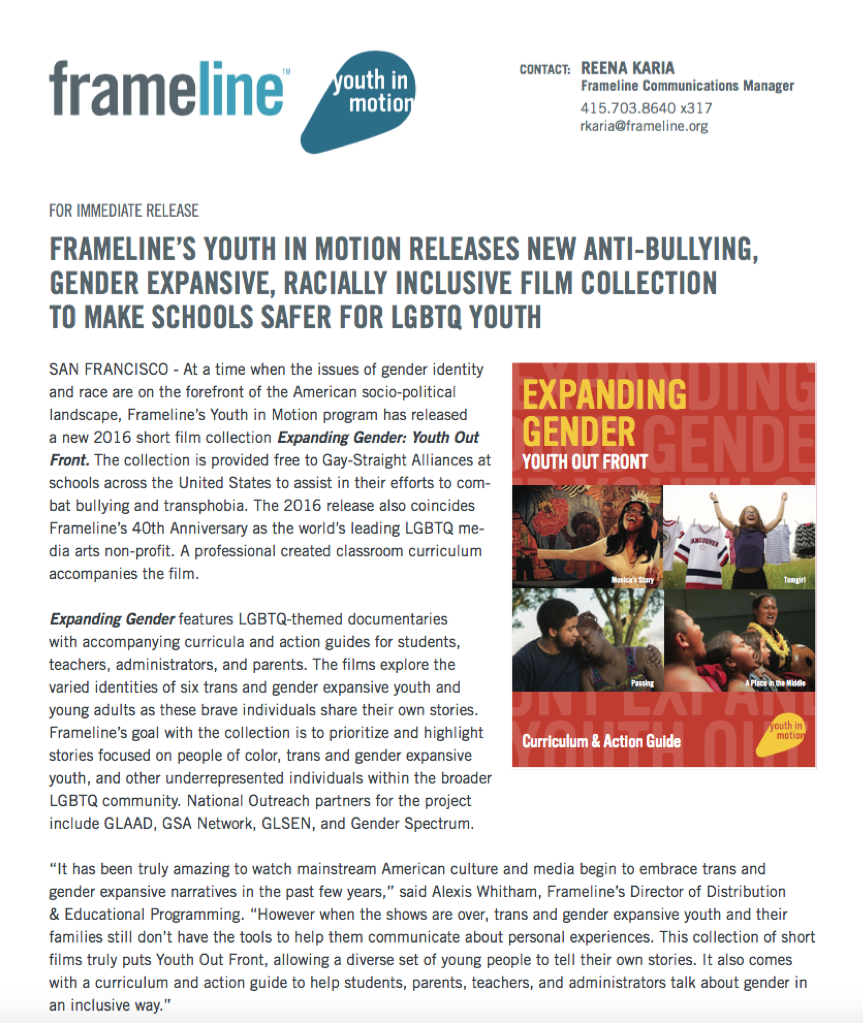
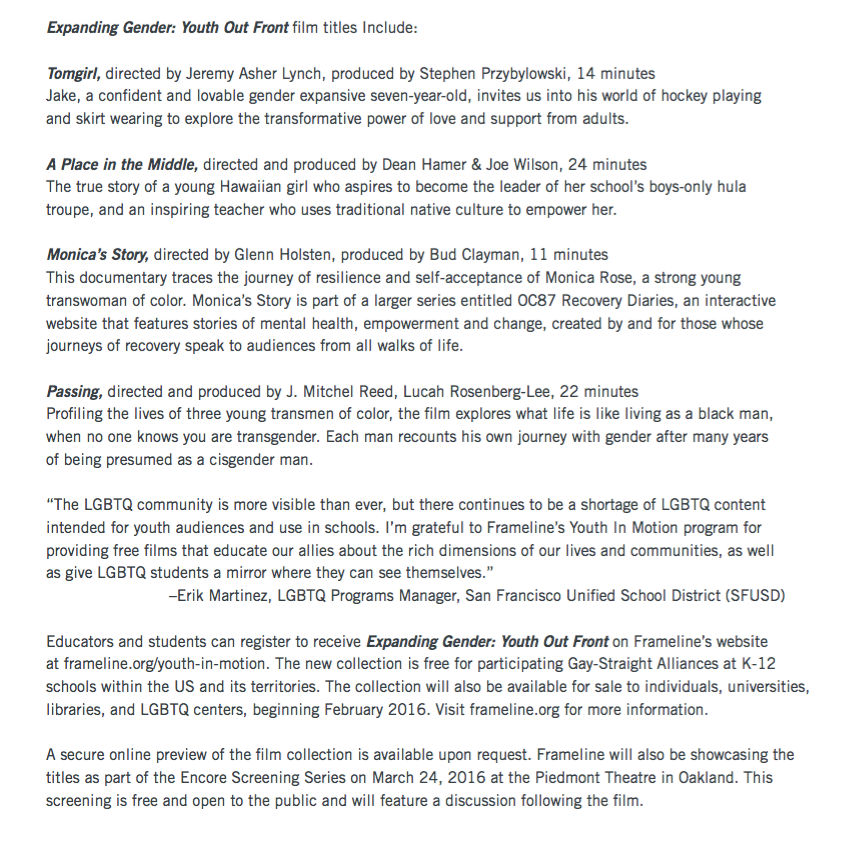
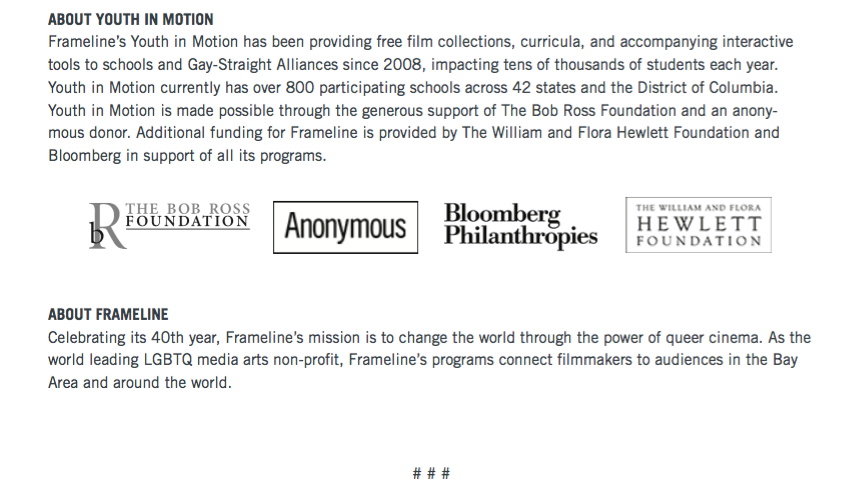
-
- Posted on
25th Jan
- Category:
news
-
- Posted on
10th Jan
- Category:
news

Advocates say gender tolerance, common in Hawaiian society, has been weakened by US influences
by Jon Letman, AL JAZEERA AMERICA - January 9, 2016:
LIHUE, Hawaii — Growing up in the largely Hawaiian community of
Waianae on the west side of Oahu, Kalani Young enjoyed a diverse
upbringing that included attending Catholic, Mormon and evangelical
churches and a Buddhist temple, in addition to prayers and rituals
rooted in Hawaiian spirituality.
However Young also recalled being an effeminate young boy who was
bullied by male family members who, she said, wanted to “beat the girl
out of her.”
The 33-year-old identifies as mahu — a gender role in traditional Hawaiian society that refers to people who exhibit both feminine and masculine traits.
“You’re someone in the middle. That’s all it means,” said Hinaleimoana Wong-Kalu, a hula and Hawaiian studies teacher on Oahu, about the mahu term, which she prefers to transgender for its inclusivity.
Known as a multicultural melting pot, Hawaii is often portrayed as among the most liberal states in the country based on its support for progressive positions on issues like climate change, gun control and same-sex marriage. Hawaii became the 15th state to legalize same-sex marriage in 2013 and the state constitution, enacted in 1959, protects equal rights for all sexes.
However LGBT communities undoubtedly still face discrimination in the
Aloha State, a fact some advocates attribute to the imposition of
Western values on the Hawaiian people that began in the 18th century.
In a highly publicized case in March 2015, Courtney Wilson and Taylor Guerrero, two women vacationing on Oahu, were confronted by an off-duty Honolulu police officer after kissing one another in a supermarket.
The encounter led to a physical altercation and the couple’s arrest and imprisonment. Their case generated
national attention and a lawsuit filed against the 26-year veteran
police officer and the City and County of Honolulu. The couple’s
attorney, Eric Seitz, said this was the first such case that he’d heard
of in Hawaii.
“[T]he police officer acted in an outrageous manner, based upon his
own moral outrage, and the police and prosecutor subjected our clients
to a period of incarceration and a felony prosecution that should never
have occurred,” Seitz said in an email.
The Honolulu Police Department confirmed that the officer involved in the incident remains on full duty.
‘You’re someone in the middle. That’s all [mahu] means.’ -- Kumu Hina Wong-Kalu,Hawaiian studies teacher
The Transgender Law Center ranks Hawaii as “medium” for its laws promoting LGBT equality. Twenty-one states have an equal or higher ranking.
LGBT advocates say Hawaii’s native culture traditionally accepted
more nuanced gender roles, and current attitudes toward gender and
sexual identity in Hawaii have been affected by colonization, land
seizures, the suppression of Hawaiian language and culture, and the
imposition of moral codes by Western missionaries.
Before Hawaiians’ contact with outsiders, for example, Wong-Kalu says mahu individuals were respected, but faced increasing intolerance as native Hawaiians were supplanted by colonial settlers.
The term, once used respectfully, has been appropriated and
displaced, said Wong-Kalu, who contends that today’s lack of acceptance
is the result of colonization.
“Our own culture is used against us,” she said. “Mahu are denigrated and disrespected because of the imposition of foreign ideology.”
Gender-based prejudice can be found at every level of society in
Hawaii, including workplaces, houses of worship and schools. As in the
continental U.S., the question of which bathroom they can use can be a
source of uncertainty for LGBT students.
Mandy Finlay, advocacy coordinator at the American Civil Liberties
Union of Hawaii, wants Hawaii’s Department of Education to clarify its
policies on school restrooms and locker room use for LGBT students, and
“whether forcing kids to use a separate restroom constitutes any sort of
discrimination on the basis of gender identity or sex.”
In a written statement, the Hawaii State Department of Education
responded, “The Department is actively working with schools on
guidelines regarding transgender students and bathroom access. In the
meantime, schools work with students who identify as transgender on
appropriate accommodations.”
In Hawaii as across the country, transgender persons face a wide
range of problems from discrimination by employers, landlords and in the
public sector to higher rates of substance abuse, homelessness, health problems and suicide attempts.
Hawaii’s largest insurance provider, Hawaii Medical Service
Association, does not offer coverage for gender reassignment procedures
and treatments.
Kyle Kajihiro, a board member with Hawaii Peace & Justice, said the most pressing issues in the struggle for LGBT equality in Hawaii are jobs and housing.
“There is still aggression and discrimination happening below the
radar,” he said. “You don’t see it but it’s happening every day and it’s
still a big problem.”
Meanwhile, same sex wedding tourism is making headlines in the islands as the impact of LGBT visitors grows while still appearing to fall short of economic forecasts by the University of Hawaii.
Kathryn Xian, a human rights advocate based in Honolulu, recalled how
during Hawaii’s campaign for marriage equality in the late 1990s,
outside groups opposed to same-sex marriage funneled money and an
anti-gay message that homosexuality was being “imported” into Hawaii.
“Things are challenging,” she said. “But in some ways it’s a lot
easier for LGBT persons to live here — the fact that the Hawaiian
culture is the root of acceptance and precedes any sort of bigotry
transplanted after Western contact.”
-
- Posted on
11th Dec
- Category:
news


Transcript: Dec. 10, 2015
The Nothing Less Than Equal Film Festival ends in Suva,
with a screening of 'Kumu Hina', a documentary about a transgender
native Hawaiian woman who found refuge in her traditional culture.
The film is the main event for the festival's final night, intended to cap off World Human Rights Day festivities on Thursday.
Focusing
on the life of Hina Wong-Kalu, a Honolulu-based teacher, the film,
'Kumu Hina' explores her relationship with her Tongan husband, as well
as her contribution and acceptance as a cultural leader in her
community.
Dean Hamer and Joe Wilson directed and produced the
documentary, and they say they wanted to focus on how Hina's culture
allowed her to develop a sense of pride about her gender identity.
-
- Posted on
11th Dec
- Category:
news


Transcript: Dec. 10, 2015
A Hawaiian-Tongan transgender love story was the focus
of the last film at the 11 day long Nothing Less Than Equal Film
Festival in Fiji which finished last night.
The film festival was the first in Fiji to focus on human rights and violence against women.
The festival formed part of the United Nations 16 Days of
Activism campaign which sparked events across the Pacific illuminating
gender-based violence.
The directors Dean Hamer and Joe Wilson told Bridget Grace what the film is about.
Dean Hamer: Kuma Hina is the story of a really remarkable cultural
leader and teacher from Hawaii, named Hina Wong- Kalu. And she happens
to be Māhū which is the Hawaiian term for transgender, she was born a
male, but now lives as a female or somebody in between female and male.
And the story traces a year in her life and it includes her marriage to
a young man from Tonga and all the ups and downs that entails. And
also her mentorship of a remarkable young girl who wants to join the
boys hula troop, and who she empowers with her native culture.
Bridget Grace: And I understand that it's a bit of a love story?
Joe Wilson: Ooo it is quite a love story, yes. It's about Hina and
her husband's relationship, it's about love of culture, it's about a
love of teaching, and it is overall about the love of people who have
been oppressed by a dominant culture sharing their perspective on what a
better world could look like.
BG: Why did you decide that this was the story that you wanted to tell?
JW: We as people who grew up and spent most of our lives in the
continental United States came to really understand what a struggle it
is still actually, to be LGB or T, Lesbian, Gay, Bisexual or Trans in
the modern, western context. And it's often fighting against prejudice
and discrimination and fighting for one's place in the world. When we
happened to go to Hawaii and meet Hina Wong- Kalu. We saw that she as a
transgender woman is just a highly regarded, revered, respected person
in her community and it was and is her cultural foundation that embraces
her for who she is. So that became a very important thing that we
wanted to share.
BG: This is like a documentary, so it's telling a real story?
JW: When people see positive representations of themselves in their
community, in political life etc. It is an inspiration that you too may
find and be yourself and be a strong contributor.
BG: With this film, I guess it has kind of a social role?
DH: We think one of the most important aspects of the film is that it
presents a transgender woman as a very positive role model and a
mentor.
BG: In the Pacific, it is something that people need to talk about
more, that there needs to be a greater understanding and awareness?
DH: What's interesting about the Pacific, is that there has always
been a long tradition of gender fluidity, of transgender people, people
who are a mixture of male and female. And what's happened historically
is that, that discussion and that fact has been suppressed by
colonisation and by religious forces. And what's really wonderful is
that now the Pacific is talking about this issue more. People
throughout the region are beginning to discuss it and they can actually
act as a model for the West. We always think that we Westerners are the
ones that teach people everything but at least in this case, the
Pacific has a lot to teach everybody else.
-
- Posted on
6th Dec
- Category:
news
December 7, 2015:
This
week, directors, and project ambassadors, Dean & Joe are off to
share a message of gender diversity and inclusion with audiences in Fiji
and Tonga!
In Fiji, KUMU HINA is the closing night feature in the Nothing Less Than Equal Film Festival,
an event organized by the Fiji Women's Right's Movement and several
United Nations agencies in the region to help end violence against
women and girls, and to promote respectful, equal, strong, and healthy
relationships.
In Tonga, a screening of the film hosted by the Tonga Leitis' Association will not only help to launch the
UN Pacific Free & Equal Campaign, it will be the kick-off for
Miss Galaxy 2015, an annual event that celebrates the diversity and talent of the Fakaleiti and LGBT communities throughout the islands.
There will also be a screening of KUMU HINA at Tonga's 'Atenisi Institute, an autonomous university founded by Futa Helu, a legendary artist and educator who believed that students should be taught how -- not what -- to think.
It's
hard to imagine any better ways for this project to build bridges of
friendship and solidarity across the waters than through meaningful
events like these, and we're honored and humbled by the opportunities.
Check out all the screening details HERE.
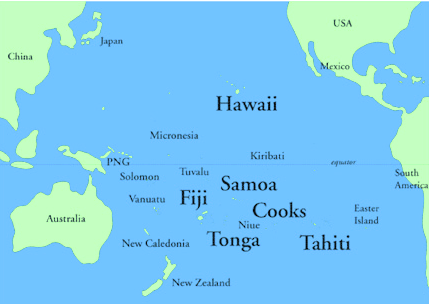
-
- Posted on
26th Nov
- Category:
news
The University of Oregon's UOTeachOUT is comprised of a series of community and university
educational events focused on gender identity and sexual orientation
issues in education.
These educational events and activities take place each May for UOTeachOUT and include:
1.) A community wide celebration and BBQ fundraiser to support LGBTQ youth leadership opportunities.
2.) A GSA Youth Leadership Summit for five regional school districts
3.) A professional development event for educators, youth advocacy workers and families
4.) A public art display related to the topic.
5.) An open-house and author talk for university students and the community at large.
6.) A Teacher Education Leadership Summit on topics related to gender identity and sexual orientation issues in education.
Save the Date: Thursday, May 12, 2016
Additional guests and specific events will be announced in January.
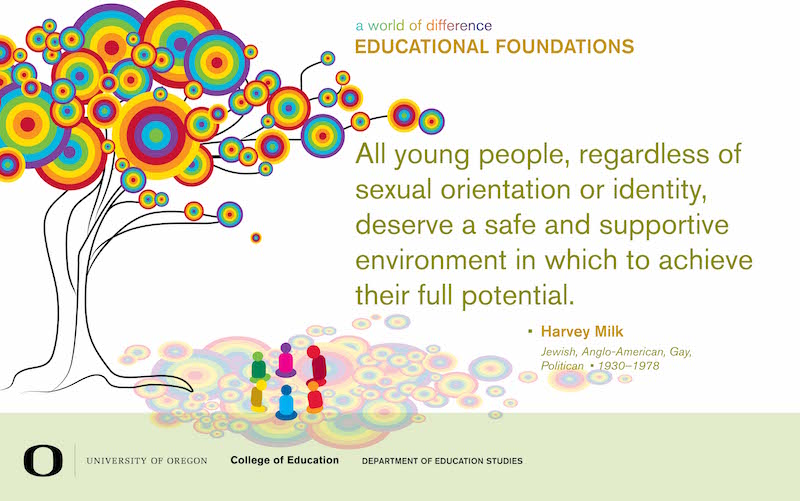
-
- Posted on
20th Nov
- Category:
news
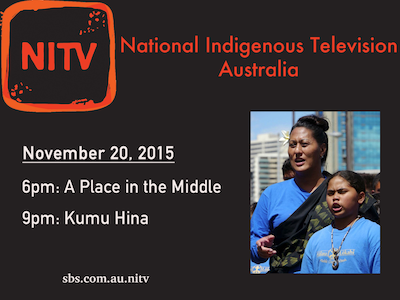
By NITV Staff Writer -- 11 Nov 2015:
Founded by activist and transwoman, Gwendolyn Ann Smith, the
Transgender Day of Remembrance marks the death of transgender African
American woman Rita Hester, who was murdered in a hate crime on 28
November 1998.
Such a day reminds us of human beings' capacity for the most abhorrent behaviour and acts.
But in the face of 21st century exclusion and
discrimination, we can look to our ancestors and traditions for answers.
When it comes to acceptance of gender diversity, the native Hawai'ian
culture offers powerful lessons.
"The meaning of 'Aloha' is 'love, honor and respect for all"
The meaning of 'Aloha' is 'love, honor and respect for all', which
might be symptomatic of a wider culture that promotes equality and
dignity. But beyond that, expressions of gender and sexuality which are
creative or fall outside of mainstream norms have traditionally been
celebrated in Hawai'ian culture.
As the documentaries 'Kumu Hina' and 'A Place in the Middle' reveal,
living between both genders is the powerful 'māhū' way. Hawai'ian
heritage respects the māhū people, which it says embody both the male
and female spirit. Māhū have traditionally taken on roles as caretakers,
healers and keepers of ancient traditions.
"When I was in high school I was teased and tormented for being too girlish. But I found refuge in being Hawai'ian."
Māhū Hina Wong-Kalu says in the documentary 'Kumu Hina' that she
found sanctuary in her culture and heritage: 'When I was in high school I
was teased and tormented for being too girlish. But I found refuge in
being Hawai’ian.'
Now a teacher and cultural director at a charter school, Hina teaches
her students about their culture's time-honoured traditions and values.
'Kumu Hina' follows Hina's story as she helps a student, Ho'onani,
who is also 'in the middle'. It is a truly inspiring story about love,
identity and compassion that takes us to the exhilarating final
performance of a hula troupe.
'A Place in the Middle' is a version of 'Kumu Hina' for children.
WATCH 'A Place in the Middle’ on NITV (ch 34 / 144) on Friday 20 November at 6:00PM or catch it after broadcast here, On Demand.
WATCH ‘Kumu Hina' on NITV (ch 34 / 144) on Friday 20 November at 9:00PM or catch it after broadcast here, On Demand.
Take the Pledge of Aloha by visiting kumuhina.com
I believe that
every person has a role in society, and deserves to be included and
treated with respect in their family, school, and community.
I believe that every person should be free to express what is
truly in their heart and mind, whether male, female, or in the middle.
I believe that every person should be able to practise their
cultural traditions, and to know and perpetuate the wisdom of their
ancestors for future generations.
I believe these values are embodied in aloha: love, honor and respect for all.
Therefore, I pledge to live aloha in everything I do, and to inspire people of all ages to do the same.
-
- Posted on
17th Nov
- Category:
news
Sharon
Sobotta talks with Kumu Hina, subject of an award-winning PBS documentary, about
gender and sexuality in native Hawaiian culture.
Listen to the interview here on
94.1
KPFA
-
- Posted on
14th Nov
- Category:
news
Following a broadcast of "A Place in the Middle" -- the short, youth-focused, educational version of "Kumu Hina," PBS Hawaii hosted a one-hour on-air conversation to help promote understanding, acceptance and inclusion of all people, across the gender spectrum, in our communities.













